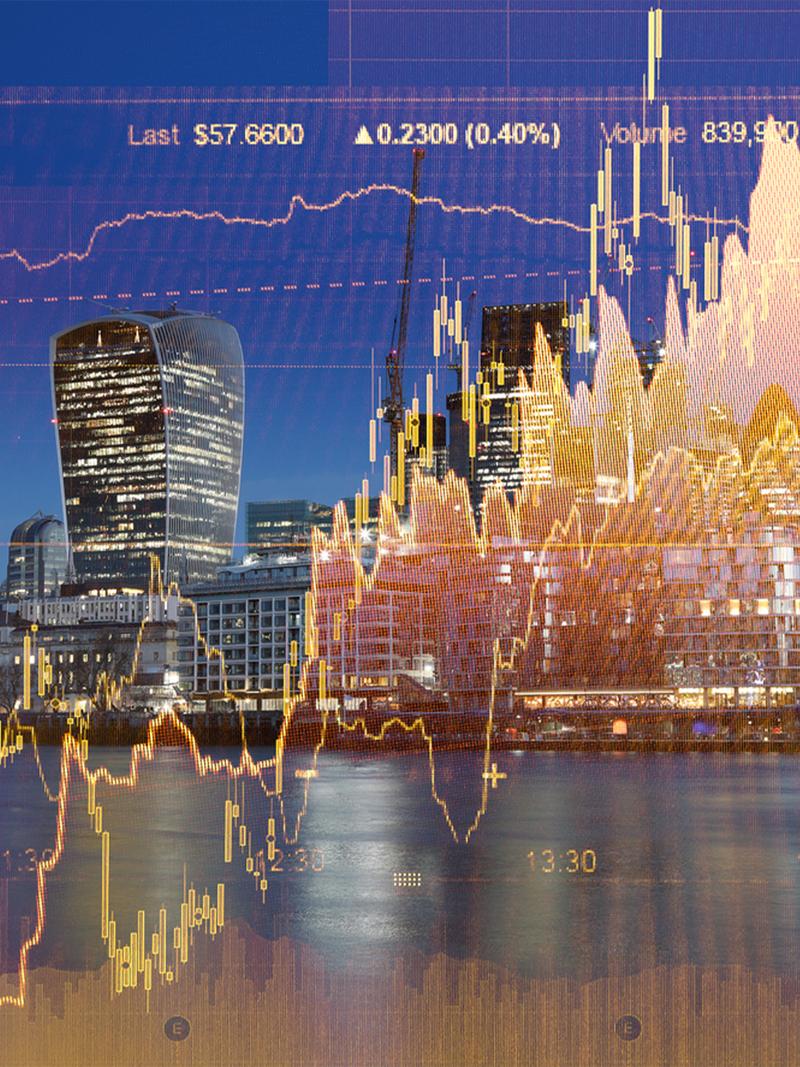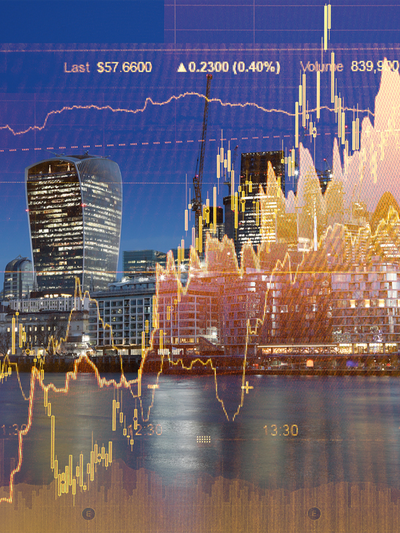

What’s Going On In The Economy
There are lots of mixed economic signals right now. There are some encouraging signs of the UK returning to GDP growth (i.e. growth in the national economy) and quite full levels of employment, but we also have inflation, which is caused by external factors like energy shortages and supply disruption. Because of that high level of employment, we've also got wage inflation, which could put us in quite a dangerous cycle of low growth and high inflation.
We’re currently stuck in a bit of a paradox. In an inflationary environment, there is a need to raise interest rates to choke off excess demand for goods and services. If you raise the price of money, money doesn't get thrown around as freely. The problem with that is people have mortgages or they rent places, and the rising cost of money makes it more expensive for, say, landlords to provide property, so then rents go up. It also makes it more expensive to borrow and secure mortgages. Monthly payments also go up – all of which means that you might be spending less, which is good for inflation, but it puts pressure on prices going up elsewhere and, in turn, employees end up saying to their employers, I need more money. So, although higher interest rates help choke off inflation, the inflation itself makes people want more money, which increases wages, which is in itself inflationary. That’s the paradox.
An imbalance in supply and demand often lies behind a lot of these problems. There are many things that cause such an imbalance. It could be a one-off event or ‘shock’ – for example, the chip shortages in Asia. That led to a supply crunch with electric cars, so what happens? The price of the cars goes up because there are fewer of them but the same number of people demanding them. We've definitely seen some of that. You can also get a geopolitical event like Russia’s invasion of Ukraine causing inflation because it pushes energy prices up out of fear that you won’t be able to pump oil from the affected regions. But when the price of oil goes up, it's not just our heating bills that goes up – it's also the cost of any industrial production which uses oil, like plastic. It has a real reverberation through the entire economy for months and sometimes years afterwards.
The main problem is that inflation is not an equal game. It discriminates against people unequally. It’s easy for the well-off to decide about not eating out or cancelling a gym membership, but you can't do that much about rent, heating and basic food costs. For people on lower incomes, a higher proportion of their spending goes towards things that aren't negotiable. That’s one of the reasons everyone gets so worried about inflation because it has a very destabilising social effect.
Concurrent to all of this is the rise of AI. The fear that machines are going to ruin our lives and get rid of all jobs in the next six months are wildly overblown. But I don't think there's any doubt that AI is going to be transformational on a level that I would say is like the internet plus the printing press plus the jet engine. In the short term, it's going to drive real economic opportunities because it needs researching, developing, regulating and so on.
As it becomes more effective, AI will enhance productivity enormously. Many processes will be rethought and done much more efficiently. But of course, economically, these effects will not be felt evenly by everyone. There may be people whose jobs are rendered lower value or non-existent by AI, as with any other nascent technology. Regulation is going to be key here. What’s needed is a quick but measured consideration of all the effects by an international, cross-discipline body. The ramifications are that big for humanity.
After a quiet period since the Cold War, the Ukraine situation has reminded us that geopolitical tensions are a way of life. My own optimism sees Ukraine pushing back, the West supporting it, and fatigue in Russia – and ultimately diplomacy prevailing and returning to some sort of uneasy peace in Eastern Europe. What the war has shown us, what the rise of China has shown us, what North Korea shows us is that the things you thought were certain and true can be dismissed pretty quickly. You can go from peace to war and stable economy to crisis very quickly.
We have had to stop thinking about the world as having as much certainty as we thought it had in the last ten or 15 years. If you’ve grown up thinking interest rates should always be 1%, this has probably been a nasty surprise and a lesson. The lesson is to put a premium on your own financial planning and the way you think about the world – or at least be prepared for volatility and disruption rather than constancy.
It's the Bank of England's job to control inflation responsibly. For the last couple of years they've had the unenviable task of trying to balance that without choking off economic growth or prosperity. Given where we are today, you might say they could have moved faster to choke off inflation, but that's easy with hindsight. There were so many forces coming into play. Some of them were shocks – like the speed at which Russia decided to invade Ukraine – others were more slow burning like Brexit and the pandemic. It’s helpful to think of everything as a series of circles: you've got normal economic cycles that are still turning, climate change which is slow but massive, and technology that’s changing everything. Then you get smaller circles. For example, the 2008 global financial crisis is still reverberating through productivity and growth and recovery, and the way banks lend and so on. Things like Ukraine and the pandemic will have implications and ramifications for economic planning and how we all feel economically for decades, possibly even centuries. Bear in mind it was only relatively recently that the government finished paying off the last of the bonds issued to finance the Second World War.
My best advice right now is to shop around. Energy isn’t as cheap as it was three years ago, but you can get energy cheaper by switching suppliers. You can do a better deal on your mortgage. Just be prepared to negotiate. Second, don't put your head in the sand. Stuff like mortgages and inflation doesn't just go away. You need to know what you've got, what you're doing with it, how you're borrowing, what would happen if something else came to pass. I’m not saying spend two hours a day on a spreadsheet, but at least keep an eye on it and build some slack into your forecasting if you can.
Market updates will be a regular feature of the SheerLuxe Business, Finance & Careers Edition. Stay tuned for the next instalment.
*DISCLAIMER: Anything written by SheerLuxe is not intended to constitute financial advice. The views expressed in this article reflect the opinions of the individuals, not the company. Always consult with an independent financial advisor or expert before making an investment or personal finance decisions.
DISCLAIMER: We endeavour to always credit the correct original source of every image we use. If you think a credit may be incorrect, please contact us at info@sheerluxe.com.

